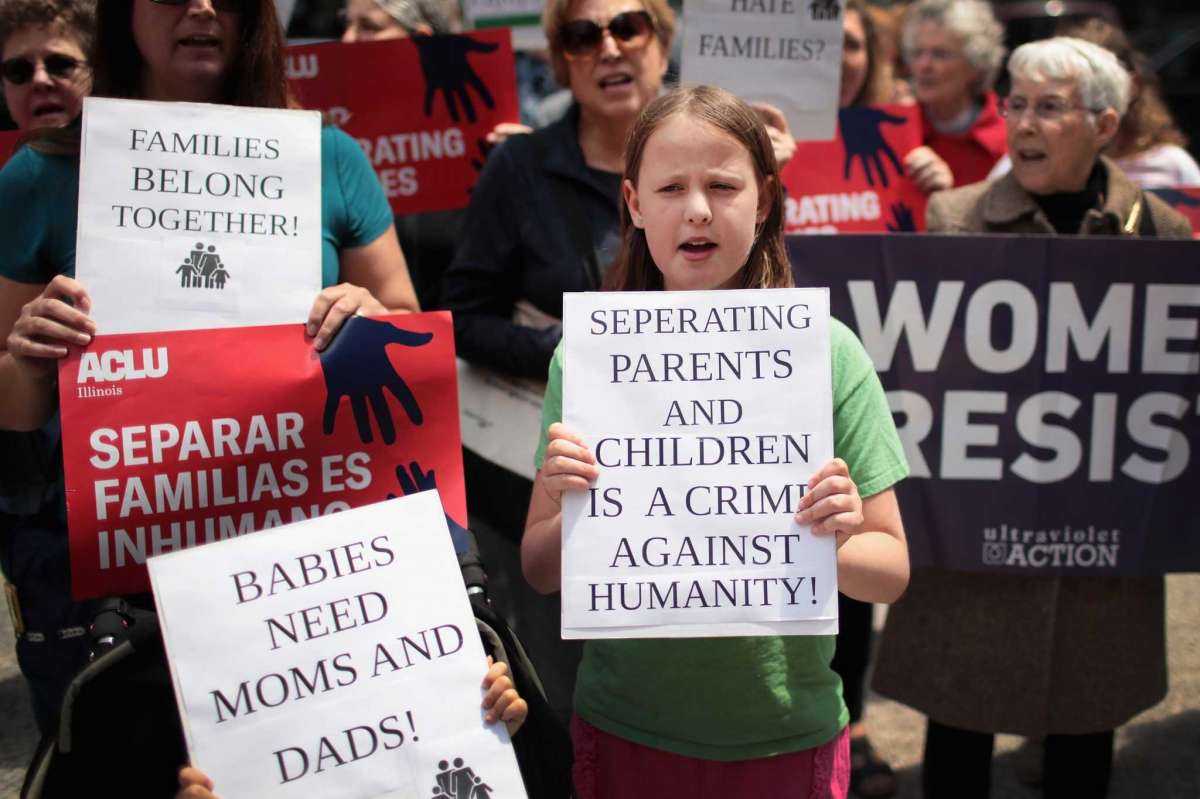According to the American Civil Liberties Union (ACLU), parents of 545 children separated from their families at the border as part of the Trump administration’s “zero-tolerance” policy cannot be found.
It’s been three years since Donald Trump ordered a crackdown on undocumented migrants crossing into the United States. The American Civil Liberties Union in a court filing submitted on Tuesday said that they have been unable to contact parents of 545 children who were separated at the United States-Mexico border under the Trump administration’s “zero-tolerance” immigration policy.
In 2018, a federal judge in San Diego ordered the Trump administration to reunite the families who were separated by its horrific and ill-famed no tolerance migration policy that left children living with sponsors throughout the United States. According to a court document filed by the US Justice Department and ACLU, the children were separated between July 2017 and June 2018.
Formally the zero-tolerance policy was announced in April 2018. However, later it was revealed that the administration had started separating the families the previous year under a secret pilot program.
Lee Gelernt, Deputy Director of the ACLU, who is also leading the litigation said, “What has happened is horrific. The scale of the damage zero-tolerance did to families at the border is beyond comprehension. Some children were just infants when they were separated from their families, while some have been separated from their parents for more than half of their lives now.”
The ACLU and other groups have also sued the Trump administration over the practice of separating families. The court filing is a part of the ongoing effort to reunite the families that were once separated. But the groups believe that the reunification process has often been unsuccessful due to the government’s poor tracking system.
What was the zero-tolerance policy?
On April 6, 2018, a new policy was announced by the Trump administration that intended to ramp-up criminal prosecution of people caught entering the United States illegally. With the announcement of the policy, various news outlets began to report that unauthorised immigrant parents travelling with their children were being criminally prosecuted and are being separated from their children. The pictures and audios of children sleeping in cages and crying for their parents provoked widespread criticism from within the US and around the globe as well.
But till the time a federal judge in 2018 ordered that the families should be reunited, nearly 3,000 children were separated from their parents. President Donald Trump signed an executive order on June 20 halting family separation. However, the order stated that the “zero-tolerance” policy would continue.
Since children are not allowed to be held in federal jail, they were taken from their parents and placed in the care of the Office of Refugee Resettlement (ORR).
What happened to the children?
When the children were being separated from their parents, some were even less than 18 months. Such children were treated as “unaccompanied alien children”, a category that exists primarily to serve children who voluntarily arrive at the border on their own. With the help of border agents, these unaccompanied alien children were placed in the custody of ORR within 72 hours of being apprehended.
The children then wait in government-run facilities, for weeks or months till the time the agency officials search for relatives or sponsors to care for the child while their immigration case is pending.
Is it possible to reunite these children with their families?
In June 2018, in response to the suit filed by the American Civil Liberties Union (ACLU), the US judge ordered that migrant children and their parents be reunited within 30 days. The order helped thousands of families reunite within weeks. But families separated by the 2017 pilot programme were not covered by this initial court order. The reunification of this group was ordered only last year.
It is reported that around 1,030 children were separated from their families, out of which only 485 children have had their parents found. The ACLU and a team of lawyers have been since then searching for the families of the other 545 children who are still not reunited with their families.
About two-thirds of parents of those 545 children are believed to be in their countries of origin. But once located, many of the parents have a trust deficit with anyone claiming to help them locate their children.
Long term cost of such separations:
Such kind of separation of families results in psychological harm within separating family members. These harms are now only creating panic and anxiety among immigrants and their children as they now not only have to fight for their release from detention but the pandemic as well.
A September 2019 government watchdog report found that immigrant children who entered government custody in 2018 frequently experienced “intense trauma,” especially those who were unexpectedly separated from their parents. It is believed that each child reacts to family separation differently. But psychologists have observed three main kinds of effects: disruptions to their social attachments, increase in their emotional vulnerability, and, in some cases, few kids suffer from post-traumatic stress disorder.

